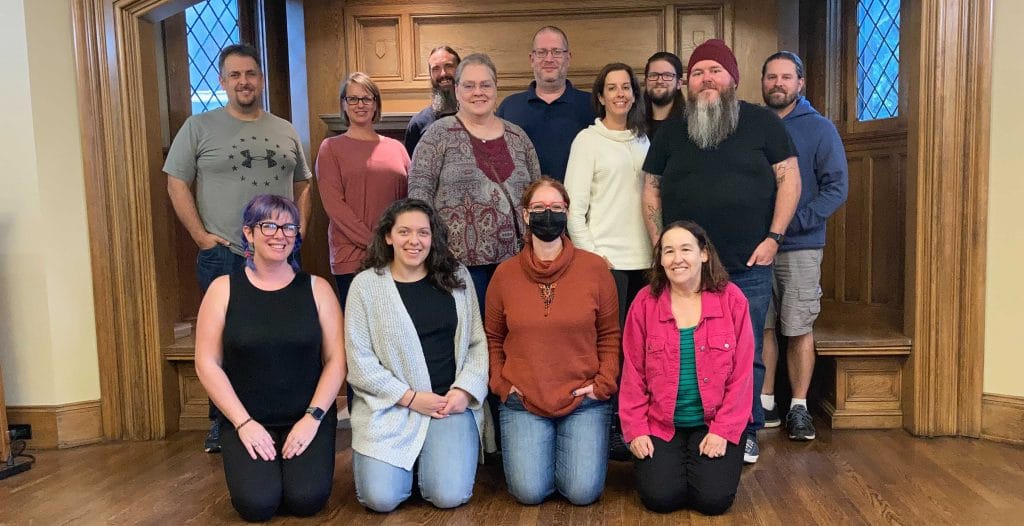A curated collection of the latest and most interesting podcast episodes about the author life.
Thank you for reading the latest edition of the Author Podcast Broadcast (APB)! My name is AW Roberson and I write epic adventure fantasy and historical fiction. Additionally, I am a Certified Three Story Method Editor and an active member of The Author Success Mastermind. And in those three things, you have the embodiment of humanity. The innate desire to create. The endearing instinct to serve others. And the recognition of strength in community. You can’t go wrong when you embrace those three things. I know I am a better person for it, to be sure! Enjoy this sampling of resources as you expand your mind and perspectives. And don’t neglect the blessing of being engaged in a community of authors, editors, and consumers of art! Be well and press on.
Top 3 Must-Listen Episodes
The Editing Podcast // Episode 92: Why editing is NOT about being ‘a bit OCD’
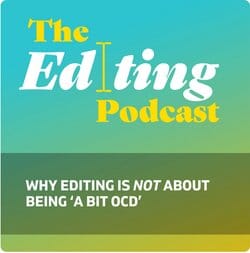
Louise Harnby and Denise Cowle pull from personal and professional experience to discuss a very interesting topic in the spectrum of mental health and how a simple comment by many creatives deserves a conversation and increased awareness. In the spirit of that appreciation, their aim is to help others avoid what can sometimes diminish and offend people who truly struggle with Obsessive Compulsive Disorder (a.k.a. OCD).
There is rarely an insult intended when using the term as a description or rationale for an eye for precision and order or for being meticulous and exacting. Rather, claiming to be OCD is often a throw away term when used out of context. For example, one can say they are being OCD for picking up the smallest of errors, especially with line editing or proofreading. But that use of the word would be in error.
OCD is not synonymous with attention to detail. Many creatives may use a phrasing like this which incites the image of being “a bit OCD” when it comes to editing, proofreading, or the writing process. But that is a sore misuse of the term (e.g. a true medical diagnosis). Not only does this misuse disregard those who actually suffer from diagnosed OCD, but it may misrepresent the quality and aptitude of skilled writers and editors.
There are certainly qualities and habits of orderliness which are mere character traits. The two hosts discuss the continuum of Obsessive Compulsive Disorder (OCD) and how it truly manifests as a paralyzing struggle for people. They ask questions and explore how true OCD can certainly manifest in the lives of writers; all the same, a writer or editor demanding order, routine, excellence, and more is not the same. This is an engaging conversation which brings recognition to the ever-widening awareness of mental health.
My Imaginary Friends with L. Penelope // Episode 173: Successful Writing Retreats
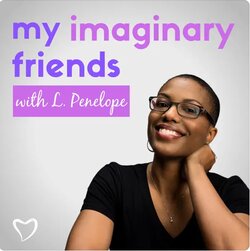
L. Penelope celebrates the mental and professional benefits of writing retreats. She shares her experiences from a recent writing retreat that included less than a dozen writers in a shared space with access to amenities and luxuries of home. The immediate beauty of retreats, of course, is that they typically occur away from the demands and interruptions of life.
Part of the retreat included an opportunity for exercise which is of great importance for those who sit all day. Another element of the writing retreat which she emphasizes is the sense of community to counter the solitary nature of writing. Retreats have the benefits of placing a writer around other creatives without the demands of conferences. They are typically small gatherings with personal interaction in contrast to the masses of people and elaborate events of larger programs.
One bonus that L. Penelope discovered was that sharing a space with a group of writers resulted in the stoking of creativity. She found her time to be highly productive with a balanced amount of breaks. Plus, in this podcast, she gives a personal update on her own projects and how the recent retreat was monumentally important.
Among her tips for a successful writing retreat, she notes the importance of ergonomics (i.e. personal space, common areas, and writing spaces (chairs, tables, desks, etc.), she emphasizes the need to protect your time and attention (e.g. maintaining boundaries for protecting your physical, mental, and creative space), and she encourages us to be flexible with hitting certain writing goals and with engaging others by being sociable.
Unpublished // Episode 67: Creatives Will Lead the Work Revolution
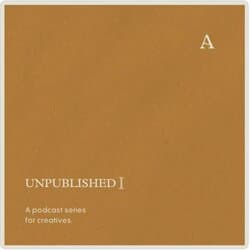
Amie McNee and James Winestock discuss our current era of professionalism from the massive post-pandemic shift where the new work culture is very different today than it was just a few years ago. Their goal for this conversation? To help ensure a sustainable creative work-life for those who come after us.
Many creatives have worked from home for years. If not entirely, part-time creatives are accustomed to their home serving also as a place of work where they create, produce, market, and maybe even sell their creations. This is a refreshing conversation. Building on the benefits of working from home, the episode challenges the social contract that working the traditional corporate office jobs is the only way to achieve lifestyle goals. As these hosts proclaim, creatives are helping to lead the change of this incredible revolution.
Further, the discussion builds on how different the creative life is from historically 9-to-5 jobs. The artist routine is different for each of us. Some have schedules. Some binge. Some work in short bursts early in the mornings. Others stay up all night. The point is that each of us can thrive in our own unique ways and still be productive, still maintain responsible livelihoods, and still contribute to society.
With no blueprint or structure, creatives have repeatedly paved the way for showing that the task completion is more important than the time punched on a clock to get that task completed. The conversation even opens to the curtails caused by resistance, guilt, and shame that creatives may feel when this way of life is challenged for being in the realm of nonconformity by industrial methodologies. To be sure, this is a perspective of a greater conversation that is certainly worth hearing.
The Latest from The Author Life Podcast
66: HOW DO YOU BUILD A SERIES BIBLE?
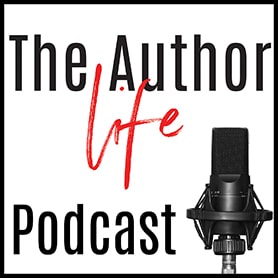
This week Crys Cain is joined by special guest, Miss Catherine, to discuss how to create a series bible and the benefits of doing so.
The Wildcard: Interesting Episode from a Non-Writing Related Show
America’s National Parks Podcast // Episode 200: Grand Register of the Yo-Semite Valley
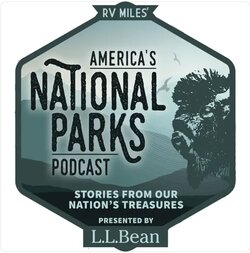
As creatives, we challenge ourselves to draw inspiration from almost anywhere. That may be from our contemporary surrounding, the scientific theories of tomorrow, or the recorded history of yesterday. Either way, there are plenty of stories to be told and even more wells to draw creative water from.
In this episode, the registry of the Cosmopolitan Bathhouse and Saloon is explored. Sounds boring and not very inspirational; but, who better to tell the tails of trekking into the wilderness or enduring the trials of 19th century American expansion or more nefarious dealings with strangers and critters alike than those people who actually experienced them. That is exactly what this registry accomplishes.
The guests of the Cosmopolitan would leave behind history, stories, names, and even initials after refreshing for the night. Surrounded by the luxuries of home and the most ornate furnishings within a week’s journey, the Cosmopolitan Bathhouse and Saloon was a treasure for weary travelers. For creatives, the Grand Register is a treasure for us!
Inside The Author Life
Give yourself grace to fail. Then learn and try again.
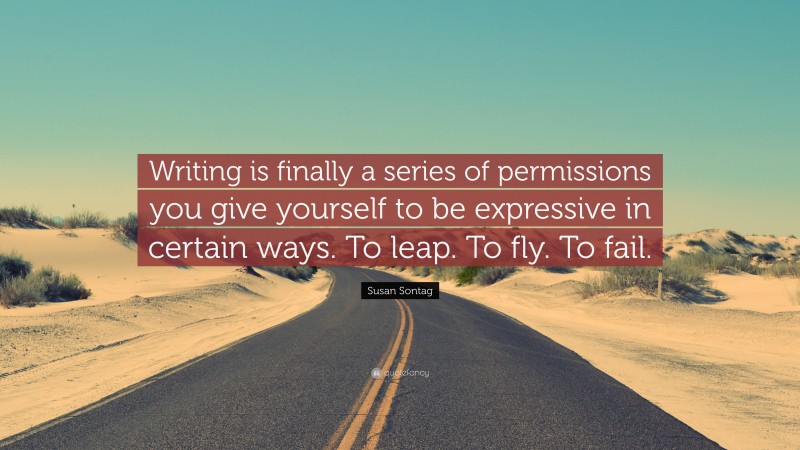
Get the APB delivered straight to your inbox!
Need some help with your story?
Three Story Method certified editors are standing by, ready to help you become a better writer. Click on our picture or visit https://theauthorlife.com/editing/ for more details!
Posted in Author Podcast Broadcast

